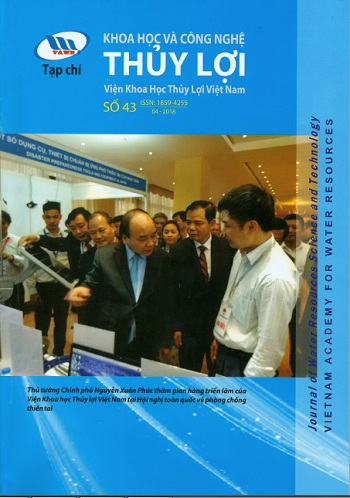TÁC ĐỘNG CỦA CHÍNH SÁCH MIỄN GIẢM THUỶ LỢI PHÍ ĐẾN HIỆU QUẢ HỆ THỐNG CÔNG TRÌNH THUỶ LỢI, HIỆU QUẢ TƯỚI MẶT RUỘNG VÀ KINH TẾ HỘ GIA ĐÌNH Ở LƯU VỰC SÔNG HỒNG
Abstract
Irrigation Service Fee (ISF) has been adopted worldwide as an effective tool to improve water use efficiency in irrigated agriculture for a major water user especially in the context of climate change and water scarcity. ISF has been applied throughout Vietnam for decades, but the policy on ISF has changed to subsidize for farmers since 2008. Impacts of this policy at on-farm irrigation management and the performance of irrigation systems in the Red River Basin (RRB) have been not documented clearly. This study investigated the current situation of ISF policy in the RRB and demonstrated the significance of this policy to the irrigation performance at different levels from on-farm to system and river basin.
The study found that the exemption granted from ISF, after one year of implementation, had both disadvantages and advantages. At the system levels, many iririgation schemes were improved thanks to the ISF exemption but it also created an increasing burden for national budget. Using the Difference in Difference impact evaluation method, the policy had a negative and significant impact on on-farm irrigation performance measured by flexibility, reliability and equity indicators. We found the exemption caused no significant impact on agriculture productivity, cultivation labor or rice yield in the study area. While total income and gross cultivation income of the sample households were not affected by the existing ISF subsidy, net cultivation income increased. In the interest of improved water use efficiency in irrigated agriculture, it is recommended to revise the current ISF exemption policy and follow a service-oriented management approach.

